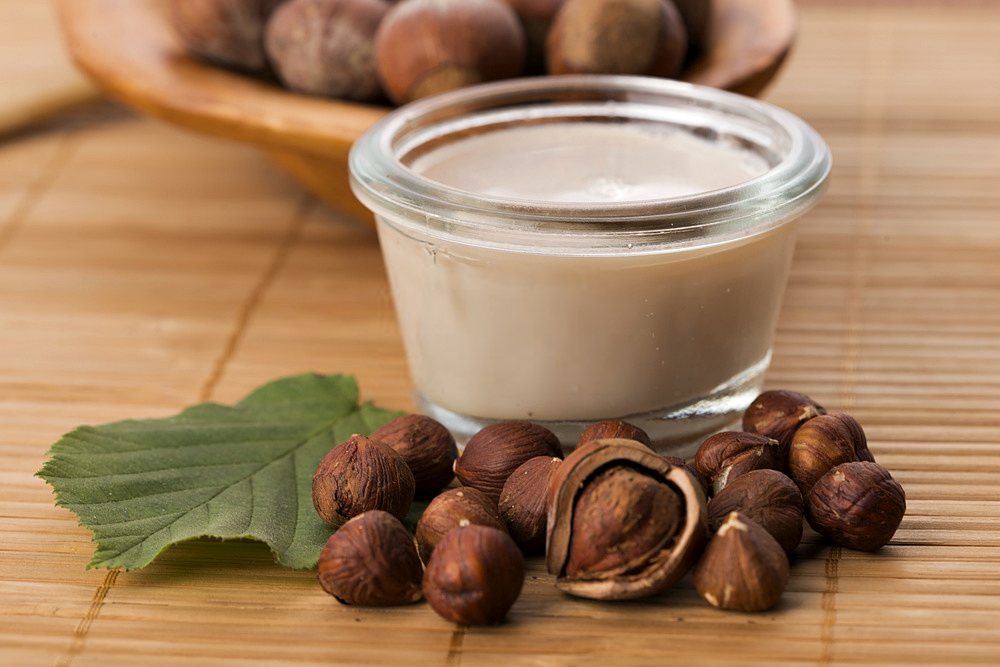Hazelnut milk is an attractive milk substitute. You can find all the advantages and tips for use here.
Hazelnut milk: A sustainable alternative?
- In the past, cow’s milk was the epitome of a healthy food. Nowadays, where vegan has long been more than just a trend, there are many milk alternatives and the benefits of milk are no longer undisputed.
- This is of course supported by the fact that there is no mass livestock farming and that the environment is treated more carefully. Plant alternatives cause less greenhouse gases and require less space in production.
- While soy milk is often laboriously imported from South America, hazelnuts can be grown in Germany without any problems. If you rely on regional products, you can definitely do something good for the environment.
Hazelnut milk: nutritional values
- Calories: 30-50 kcal
- Fat: 2-3 grams
- Protein: 0,5 gram
- Carbohydrates: 3 grams
Compared to “normal” milk, hazelnut milk contains less protein and also slightly less carbohydrates. While cow’s milk does not contain any fibre at all, the milk alternative provides half a gram to a gram. The calorie content is about the same, depending on fat content and brand.
Hazelnut milk: ingredients
Hazelnuts naturally contain many healthy vitamins and minerals. Hazelnut puree therefore convinces among other things with the following ingredients:
- Vitamin E
- Vitamin B
- Zinc
- Phosphorus
- Iron
- Magnesium
- Phosphorus
- Calcium
Hazelnut milk: Sold variations
- Hazelnut milk is not yet one of the most popular milk alternatives. Almond milk, coconut milk or naturally soy milk are offered and sold much more frequently.
- Just because hazelnut milk is on the packaging does not guarantee a healthy drink. Many manufacturers add sugar as well as emulsifiers and stabilizers.
- There are also variants with added calcium and in combination with rice or almonds. Rice makes the drink contain more carbohydrates. Some manufacturers also offer certified organic ingredients.
Hazelnut milk: recipe to make yourself
- You can also simply make hazelnut milk yourself. Soak 500 grams of hazelnuts in water overnight. Then rinse the nuts and put them in a mixer with 500 ml water.
- Depending on your wishes, you can now add ingredients such as dates, agave syrup or honey and puree them. Finally, pour the mixture through a sieve into a bowl.
- Be sure to put a cotton cloth in the sieve before you start. You can then wring the cloth over the bowl again.

